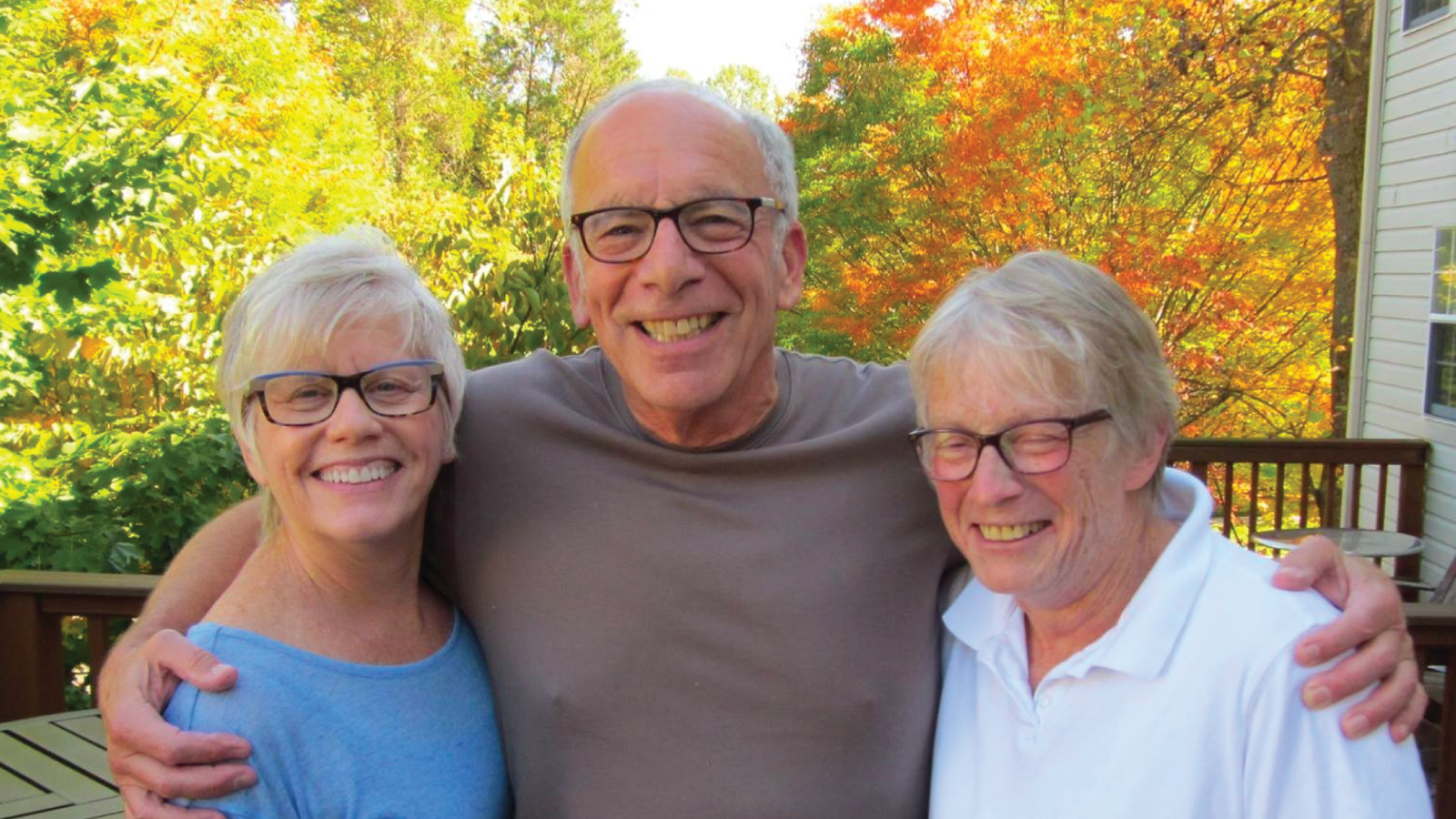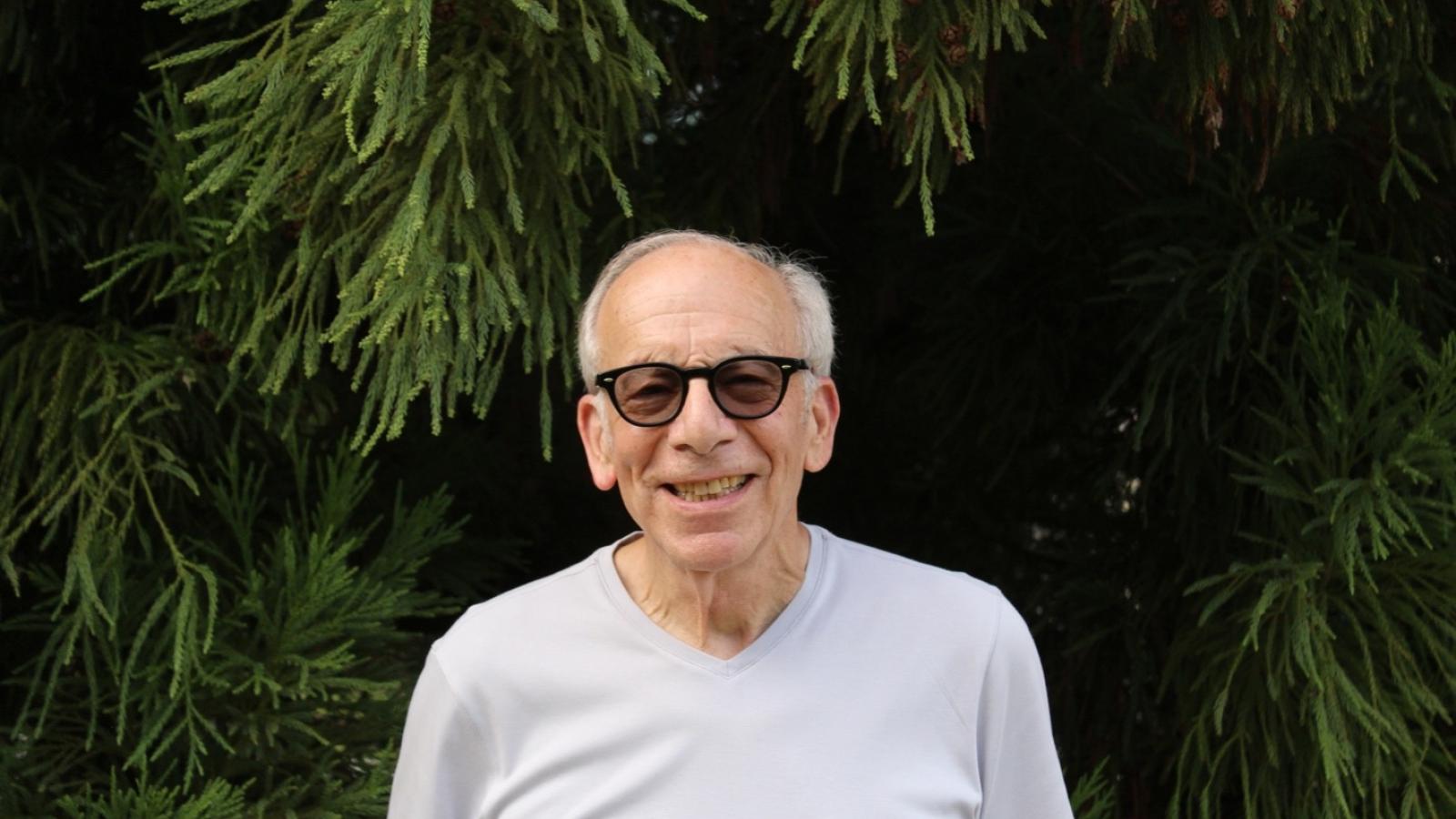Bruce Hulman
Bruce Hulman earned his BS and MS from SES in 1969 and 1973, respectively. After returning to OSU to earn a BS in civil engineering in 1979, Bruce was an engineer at the Delaware Solid Waste Authority before retiring in December 2014.
Contact: bhulman@comcast.net, bhulman@me.com
"The camaraderie among geology students was just great. I fondly remember how we were as students, treks to Larry’s Bar in High Street on Friday afternoons, seminars about various aspects of geologic study and the summer field camp in Ephraim, UT. Who could forget that experience??"
Where has your degree taken you?
I have enjoyed a working career spanning 48 years doing various tasks as a rookie geologist to being a professional engineer/hydrogeologist working on sizeable projects that involve construction management. Along my professional path, I have made many great friendships. My work has taken me to Illinois, Kentucky, Wisconsin, Michigan and then east to Delaware where I eventually retired. I retired at the end of 2014. I am now living in Silver Spring, Maryland.
What is your favorite memory as a student?
I have many “favorite memories.” I remember doing the work for my senior thesis. I would drive to the Delaware area, Ohio on Saturdays during January 1969 to November 1969 for the purpose of collecting groundwater samples at an oil-field brine groundwater contamination site. Oil-field brines were disposed in what was called, evaporation pits. The brines percolated into a shallow water-bearing zone adjacent to the Olentangy River. The resultant percolation of the brine caused shallow groundwater contamination. My senior thesis project included performing chloride concentration analyses of the water samples in the hydrogeology lab located in the basement of Mendenhall Lab.
I also have great memories of my classmates with whom I spent time agonizing over homework assignments. I remember being in Dr. George Moore’s structural geology class doing graphic solutions of movement of strata on a fault via projections. I would imagine students don’t do the graphic solutions but use a computer or other automatic means to solve problems.
I always tried to make tough assignments fun with my off-the-wall sense of humor. I had modest success in putting smiles on some people’s faces but despite failed efforts at humoring people, I still tried.
The camaraderie of geology students was good when I was in the SES. I remember going to Larry’s Bar on High Street on Friday afternoons. Geology people were easy to be with.
Another great recollection I have is when I was completing my masters degree, I had an oral exam with Wayne Pettyjohn, Gary McKenzie and Russell Utgard. To this day I recall Wayne Pettyjohn handing me a piece of coal and asked, “What is it?” I agonized over how to describe it. As I was thinking, Wayne asks, “How many BTU’s in that rock?” I emphatically replied, “It’s coal!!”
What advice do you have for current and future students?
- Try not to get caught up in trying to perform flawlessly. Do your best. Life will test you harder than a college class.
- Students should follow their interests as they complete their education. Typically, a student will like or not like a topic based on the professor. Be honest with yourself, what is it that you like and once you figure that out, go with it. Remember, the topic is what should capture your interest, not the professor.
- Students should not be intimidated by professors. At the same time, respect the professors if for no other reason than they have accumulated knowledge which is worthy of respect.
- If possible, try to establish a good working relationship with professors. Very often a lot of education can be learned by way of informal discussions.
- Some of the best friends or long-lasting friendships are started among students. Being a college student should be one of the best times in your life.
- Do not focus on grades exclusively. All too often, students focus on grades and not really learning basic information or they cram information in their heads only for test purposes. If you learn the material, the understanding will stick and good grades will naturally happen.
- Understand that teaching is a form of communication and each one of us has their own way of responding to guidance or being taught. Some days you capture all that is taught or said and some days you miss. Don’t let the “misses” overtake your sense of accomplishment.
- Don’t ever take yourself too seriously. Stay with it and you’ll succeed. Steadiness wins in the end.
Please try to convince yourself that despite difficulties in particular classes, you are learning more than you think.
RESPONSE TO BEING ASKED TO UPDATE THE ALUMNI PROFILE
I was pleasantly surprised to be asked to update my “Alumni Profile” for the Ohio State School of Earth Sciences (SES). My update presents information about my life since the September 2018 alumni profile publication.
Truthfully, not much has changed in my life during the intervening years due largely to the “Covid Invasion” which has led to a restricted lifestyle.
Despite Covid-forced living conditions, I have found enjoyment in participating in my condominium’s administrative activities, taking drum lessons and trying to stay in shape.
I enjoy reading about the academic pursuits of professors and students in the School of Earth Sciences (SES). It is good to note the number and diversity of students who are enrolled in earth science.
OBSERVATIONS ABOUT THE SCHOOL OF EARTH SCIENCES
Students in the SES are actively pursuing research in a variety of geo-disciplines; even more than the work I recall being done when I was a student. Students enrolled in SES should feel proud of being part of a progressive and active department.
CONTRAST SES IN THE 1960’S and 1970’S WITH TODAY’S SES
Students today have access to computing power that was non-existent when I was a student. The ease with which enormous amounts of data can be managed is truly unbelievable. The digital age has surely provided the ability of students to perform computational tasks that were limited to use of a main-frame computer. Students can now do high level computations at home.
I feel fortunate to be living at a time where I can enjoy electronic technology in the form of cell phones, personal computers and flat screen TVs! The ability for people to have instant communication and manage enormous amounts of data is unbelievable.
However, I still believe person-to-person contact is so much more enjoyable compared to relating via an inanimate device such as a smart phone. Smart phones can’t respond with laughter at humor which is part of my persona.


